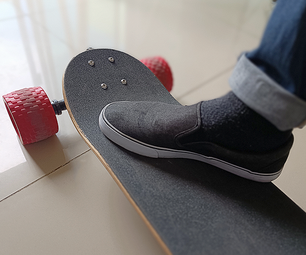Introduction: A Bench for the Garden With Scrapped Steel and Wood
My wife had a special order: she wanted a bench in the garden to rest while looking at the vegetables.
I decided to make one using scrapped steel tubes left from my swimming pool repair: swimming pool repair
The tubes are quite strong, and I thought I could make a cantilever structure. They were cut from adjustable struts and were waiting for a new project.
Step 1: Cutting the Tubes With the Correct Angle ... Not So Easy
The leg structure is composed of:
- a tube on the ground,
- then a vertical leg,
- the seat pan is not horizontal but inclined bakwards with 4°, so the angle between the leg and the seat pan is 86°
- the backrest of the seat is inclined backwards, the angle with the seat pan is 100°.
Starting from the ground, the first tube has a 90° cut on one end, and a 45° angle cut on the other end. This is easy to do with my FEMI bandsaw.
The second one is 45° on one end - easy and 43° on the other end, I had to cut the complementary angle to 90° that means 47° but my bandsaw is only capable to cut between 90° and 45°. I made several tries, and I ended up removing the stop and using the bandsaw a little bit over the limit.
For the seat pan, the first cut is similar to the leg, but the other one cannot be done with the bandsaw. I made a pattern with paper and cut it with the grinder. This applies as well to the backrest.
It is important that all the angles are measured with the tubes in the same orientation, I made some markings to show the axis.
Step 2: Welding the First Leg
I carefully positionned the tubes and clamped them on my welding table.
I welded with my MIG welder using CO2 gas and 0.8 wire. Not the best welds ever, but strong and good enough after some grinding.
Step 3: Welding the Second Leg
I used the first leg as a template to assemble the second one.
Step 4: Closing the Tubes.
To close the tubes I cut 'more or less' round plates with the plasma cutter. I welded with the MIG welder and grinded everything protruding.
Step 5: Painting
I hanged the tubes using a hook in a hole which will be used to attach the backrest and painted with spray paint. Not so easy to avoid drips.
Step 6: Preparing the Wood Sheets and Assembling
The wood was sanded, and stained.
To get clean holes without splinters, I stopped the hole when the edge of the drill appeared and finished to drill from the other side.
I first assembled the backrest to the legs with flat head screws and finished with the seat pan. I used the holes on the wood sheets to drill holes on the legs.
I initially published this instructable on my blog: olivierbricole

Participated in the
Metalworking Contest













